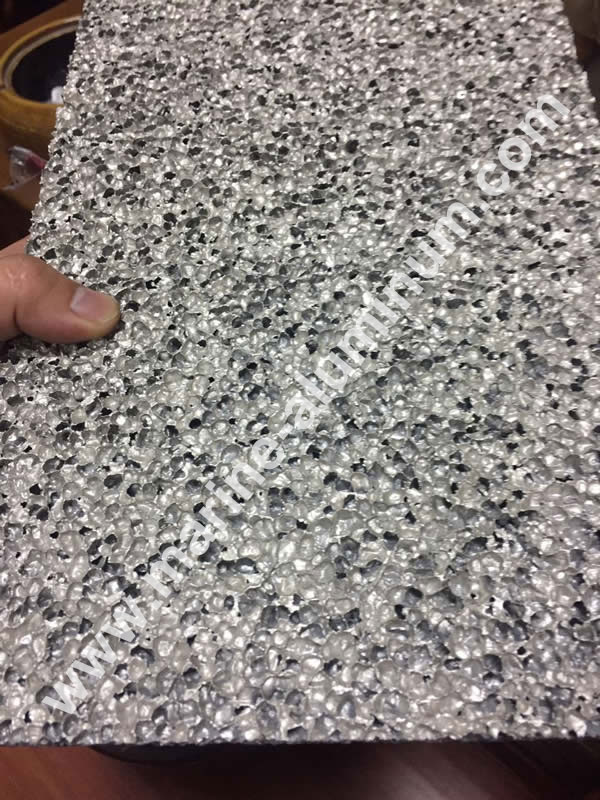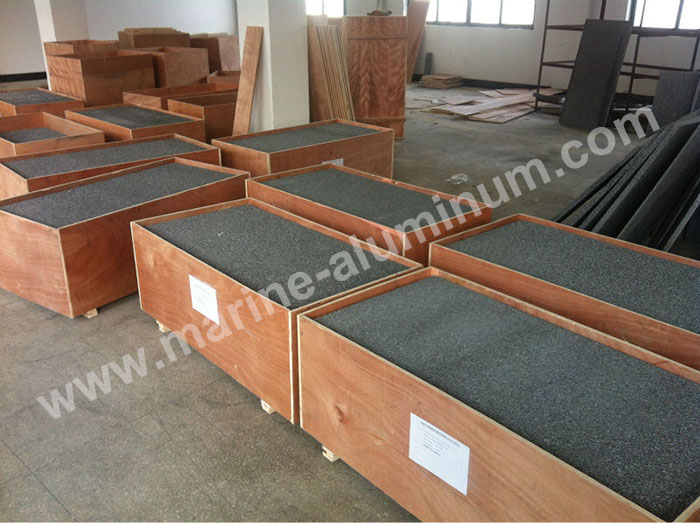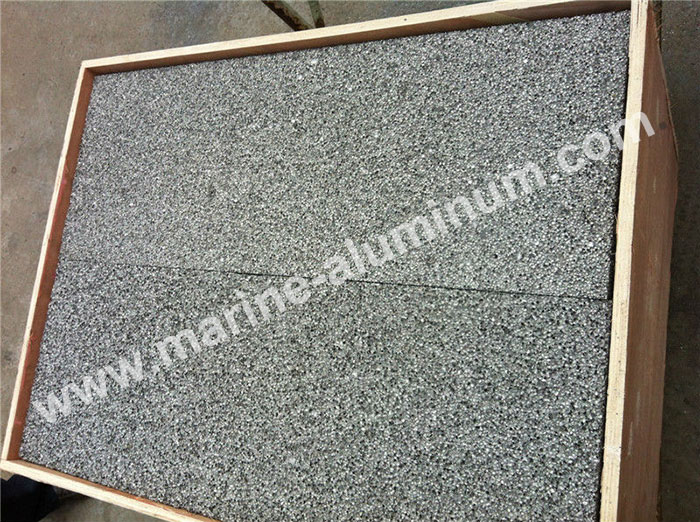At present, the "quiet" communication has become an important performance indicators, vibration and noise reduction of ship become all machine research projects, including the use of sound-absorbing material noise control is an important method of noise reduction.
Marin grade aluminum foam manufacturing process is: first aluminum metal melt, then to the aluminum if the tackifier Ca, and stirring, the melt viscosity increases; when the melt reaches a certain viscosity, the blowing agent TiH2, and increase the stirring Speed to make it even dispersed; So that the foaming agent is dispersed, a large number of bubbles are generated in the melt; finally, the bubbles in the melt are retained in the melt by cooling and cooling to make a foamed aluminum for ships blank; and the marine grade foamed aluminum product is cut into a certain shape as required.

Marine grade aluminum foam has good sound absorption performance. As the incident wave frequency increases, the sound absorption coefficient increases, and the sound absorption coefficient at the high frequency end is larger than that at the low frequency end. However, the sound absorption coefficients fluctuate in different frequency bands.This is mainly because the pore structure of each aluminum foam for ships sample has a certain unevenness. When the sound waves are incident, the energy loss of the sound waves of different frequencies colliding with the pore walls is different. The multiple reflections and refractions The energy loss is also different, so its volatility than the homogeneous material to be more obvious. At the same time, it can be seen that the pore structure, thickness and compressibility of marine grade aluminum foam have obvious influence on the sound absorption performance.

Aluminum foam for ships has good thermal insulation properties, thermal conductivity is far lower than the marble, but also lower than the asbestos, and the thermal conductivity of marine grade aluminum foam is only 1/600 of unfoamed aluminum, compared with other metals is also very small. Although the thermal conductivity of
foamed aluminum for ships increases with the increase of temperature, the change range is insignificant, which shows that the thermal insulation performance of marine grade foamed aluminum will decrease when the temperature rises, but it will not decrease significantly.


